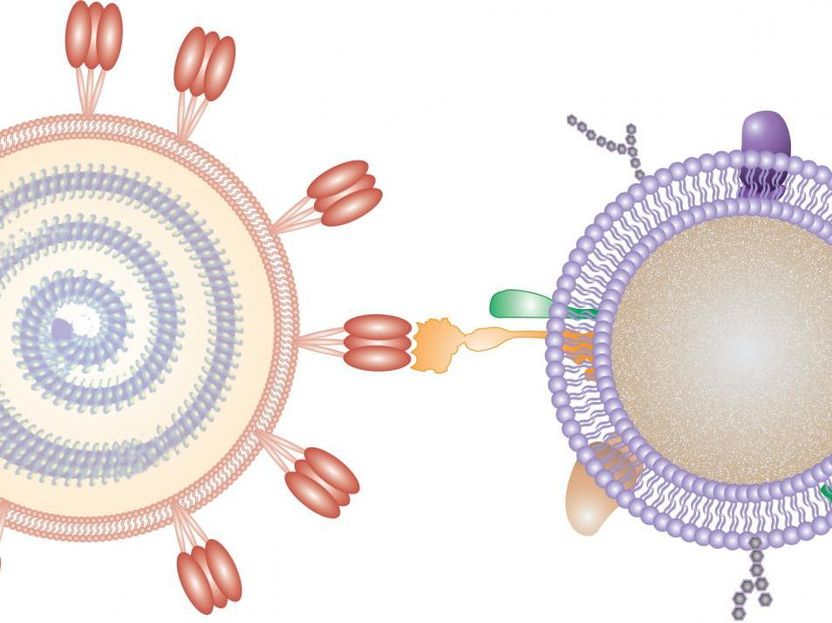Cellular nanosponges could soak up SARS-CoV-2
A nanoparticle decoy with the virus' natural targets lure SARS-CoV-2 away from cells
Advertisement
Scientists are working overtime to find an effective treatment for Covid-19, the illness caused by the new coronavirus, SARS-CoV-2. Many of these efforts target a specific part of the virus, such as the spike protein. Now, researchers reporting in Nano Letters have taken a different approach, using nanosponges coated with human cell membranes -- the natural targets of the virus -- to soak up SARS-CoV-2 and keep it from infecting cells in a petri dish.

In this illustration, a nanosponge coated with a human cell membrane acts as a decoy to prevent a virus from entering cells.
Adapted from Nano Letters 2020, DOI: 10.1021/acs.nanolett.0c02278
To gain entry, SARS-CoV-2 uses its spike protein to bind to two known proteins on human cells, called ACE2 and CD147. Blocking these interactions would keep the virus from infecting cells, so many researchers are trying to identify drugs directed against the spike protein. Anthony Griffiths, Liangfang Zhang and colleagues had a different idea: making a nanoparticle decoy with the virus' natural targets, including ACE2 and CD147, to lure SARS-CoV-2 away from cells. And to test this idea, they conducted experiments with the actual SARS-CoV-2 virus in a biosafety level 4 lab.
The researchers coated a nanoparticle polymer core with cell membranes from either human lung epithelial cells or macrophages -- two cell types infected by SARS-CoV-2. They showed that the nanosponges had ACE2 and CD147, as well as other cell membrane proteins, projecting outward from the polymer core. When administered to mice, the nanosponges did not show any short-term toxicity. Then, the researchers treated cells in a dish with SARS-CoV-2 and the lung epithelial or macrophage nanosponges. Both decoys neutralized SARS-CoV-2 and prevented it from infecting cells to a similar extent. The researchers plan to next test the nanosponges in animals before moving to human clinical trials. In theory, the nanosponge approach would work even if SARS-CoV-2 mutates to resist other therapies, and it could be used against other viruses, as well, the researchers say.



























































